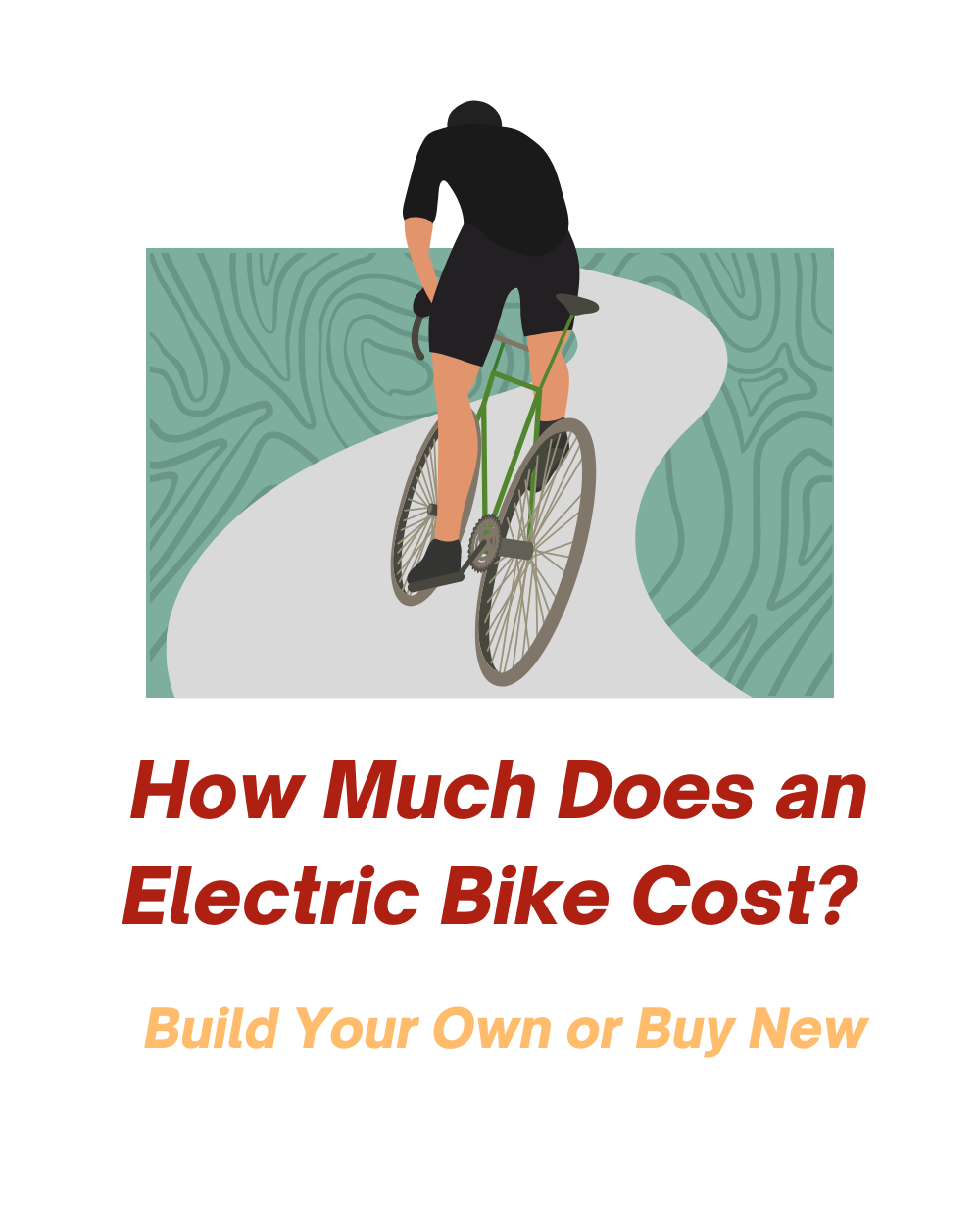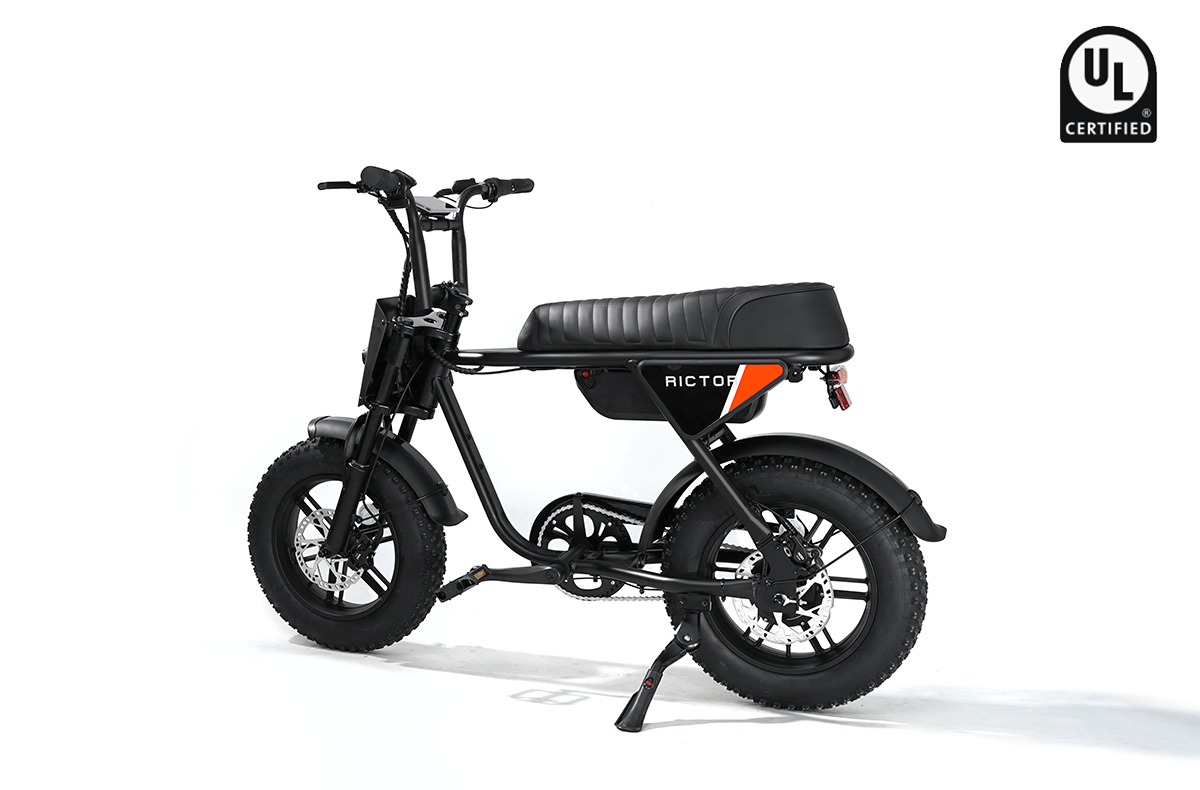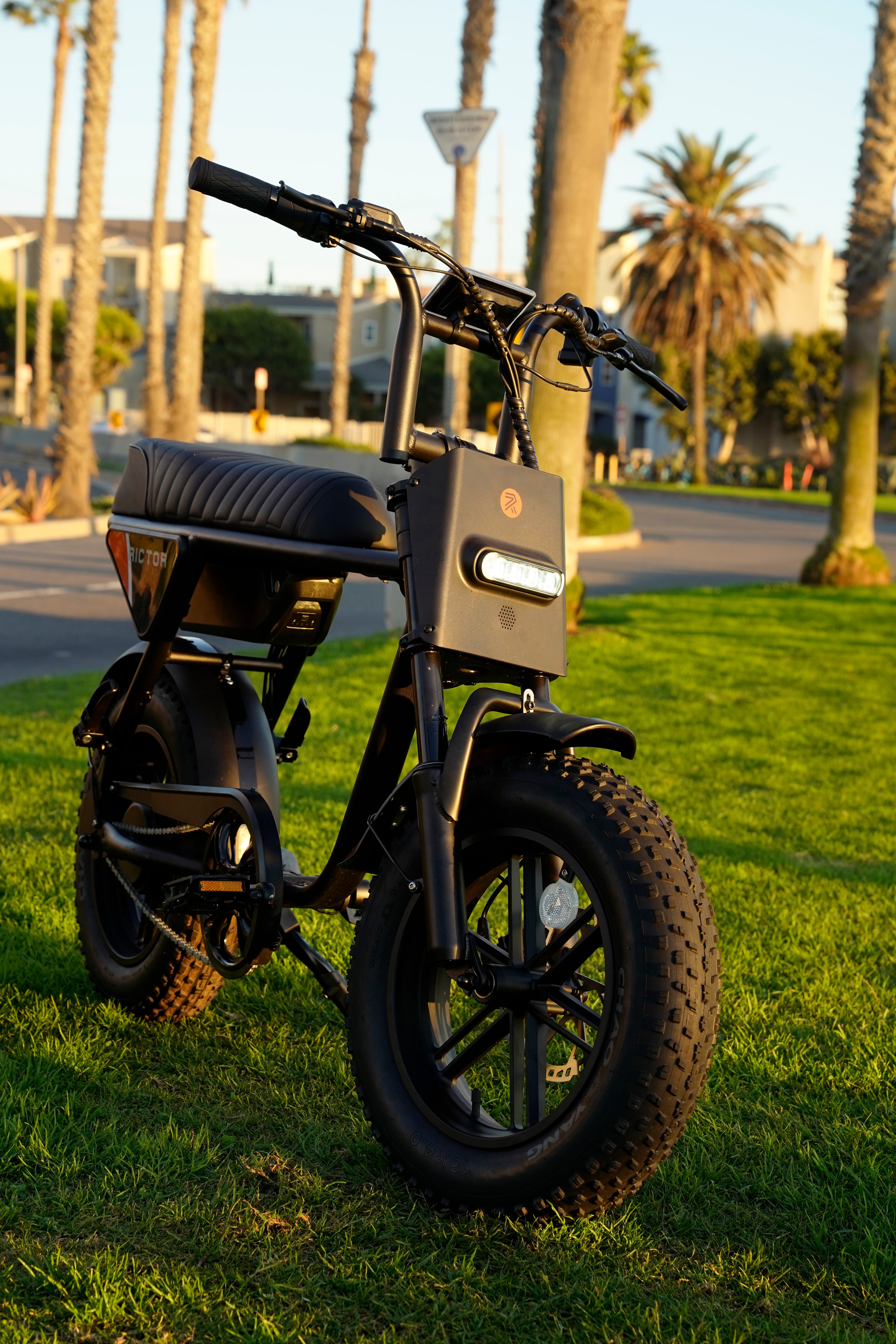
How Much Does Electric Bike Cost? Build Your Own or Buy New?
What’s the average price of a good e-bike?
You’re usually looking at anywhere between $1,500 and $3,000. That’ll get you a solid ride with decent battery life and power—great for commuting or weekend fun.
Should you go with a pre-built e-bike or try building one yourself?
Both have their perks, and it all depends on what you’re after.
Let’s break it down and see which option might be the best fit for you!
Know What Drives E-bike Costs
When you're shopping for an electric bike, you'll quickly notice that prices can range from a few hundred dollars to several thousand.
These price differences are primarily driven by three main factors: battery, motor, frame and suspension.
🛒Quick Reference Guide
| Component | Type | Price Range | Notes |
| Battery | Lithium-Ion (Li-Ion) | $300 - $800 | Most common, long lifespan, lightweight |
| Lead-Acid | $150 - $250 | Cheaper, heavier, shorter lifespan | |
| Nickel-Metal Hydride (NiMH) | $200 - $500 | Middle-ground option, less efficient, being phased out | |
| Motor | Hub Motor | $150 - $500 | Common, located in wheel, entry-level |
| Mid-Drive Motor | $500 - $1,500 | Central placement, better weight distribution | |
| Geared Motor | $200 - $600 | Smaller, lighter, faster wear | |
| Gearless Motor | $300 - $800+ | Larger, durable, heavier | |
| Aluminum | $1,000+ | Light, affordable, common in mid-range bikes | |
| Steel | $800 - $1,500 | Durable, heavier, found in budget models | |
| Carbon Fiber | $2,500+ | Ultra light, strong, high-end bikes | |
| Titanium | $3,000+ | Lightweight, strong, premium option | |
| Suspension System | Rigid (No Suspension) | $800 - $1,200 | Ideal for flat surfaces, lower price |
| Front Suspension (Hardtail) | $1,200 - $2,000 | Comfort on uneven surfaces, mid-range bikes | |
| Full Suspension | $2,000 - $5,000+ | Maximum comfort, best for rough terrains |
Battery
The battery is arguably the most crucial component of your electric bike.
It not only determines how far you can go on a single charge but also how much power your bike can deliver.
Lithium-Ion (Li-Ion) Batteries
These are the most common type of battery used in modern e-bikes.
They are lightweight, have a long lifespan, and provide a good balance between performance and cost.
However, they can be on the pricier side, typically ranging from $300 to $800, depending on capacity and brand.
Lead-Acid Batteries
These are cheaper than Li-Ion batteries but are heavier and have a shorter lifespan.
While they might save you money upfront, they may not be the best investment for long-term use.
You can find these batteries for as low as $150 to $250, but they are becoming less common in newer models.
Nickel-Metal Hydride (NiMH) Batteries
A middle-ground option, NiMH batteries are more expensive than lead-acid but less so than lithium-ion.
They are not as efficient and are slowly being phased out. Prices for these range between $200 and $500.
The battery's capacity, measured in watt-hours (Wh), also plays a significant role in the cost. Higher capacity means more range but comes with a higher price tag.
SEE ALSO The RICTOR K1 is the BEST ALL AROUND EBike Under $2,500!
Motor
The ebike motor is the second major component that dictates both the performance and the cost of an e-bike.
Hub Motors
These are the most common type, located either in the front or rear wheel. They are relatively inexpensive, making them a popular choice for entry-level e-bikes.
You can expect to pay between $150 and $500 for a hub motor, depending on the power output.
Mid Drive Motors
Positioned at the bike's center, mid-drive motors are known for better weight distribution and efficiency.
They provide a more natural riding experience, especially on hills, but come with a higher price tag. These motors typically cost between $500 and $1,500.
Geared vs. Gearless Motors
Geared motors are smaller and lighter but might wear out faster due to their internal gears.
Gearless motors, on the other hand, are larger and more durable but heavier and often more expensive. Geared motors are usually in the $200 to $600 range, while gearless motors can be $300 to $800 or more.
Frame and Suspension
The frame and suspension system of an e-bike are critical to both its durability and comfort.
Material
-
Aluminum: Light and affordable, aluminum frames are common in mid-range e-bikes. Prices for aluminum-framed e-bikes usually start around $1,000.
-
Steel: Known for durability but heavier, steel frames are often found in cheaper models or specialized bikes. These frames are typically in the $800 to $1,500 range.
-
Carbon Fiber: Ultra-light and strong, carbon fiber frames are reserved for high-end bikes and can push the price well above $2,500.
-
Titanium: Offering the best of both worlds—lightweight and incredibly strong—titanium frames are rare and expensive, often exceeding $3,000.
Suspension Systems
-
Rigid (No Suspension): Ideal for flat, smooth surfaces and typically found in the lower price range, from $800 to $1,200.
-
Front Suspension (Hardtail): Provides better comfort on uneven surfaces and is commonly used in mid-range e-bikes. These bikes usually cost between $1,200 and $2,000.
-
Full Suspension: Offers the highest level of comfort and control, especially on rough terrains, but comes with a higher price. Full-suspension e-bikes often start at $2,000 and can go up to $5,000 or more.
What You’ll Pay for Different Electric bicycles
Electric bikes have come a long way, and now there are tons of different kinds to choose from.
Whether you're cruising through the city, hitting some trails, or just getting to work, there's an e-bike for that. And with all these options, the prices can be all over the place too!
Commuter E-Bikes
💰$1,000 - $2,500
Commuter e-bikes are designed for everyday use, primarily in urban environments.
They typically have mid-range batteries and motors, offering a good balance between speed and range.
Basic models with fewer features tend to start around $1,000, while high-end commuter bikes with more advanced components and better build quality can go up to $2,500. Rictor K1 is an all-around long-range electric bike designed for various uses, priced at $2200 for the dual battery model.
Mountain E-Bikes (eMTBs)
💰$2,000 - $6,000+
Mountain e-bikes are built for off-road adventures, featuring powerful motors, larger batteries, and full-suspension systems for tackling rugged terrains.
These bikes typically start at $2,000 for entry-level models, but high-end eMTBs with top-tier components like carbon fiber frames and advanced suspension systems can easily surpass $6,000.
Folding Bike
💰 $800 - $2,500
Compact and portable, folding e-bikes are ideal for city dwellers with limited storage space.
They usually come with smaller batteries and motors but are perfect for short commutes.
Prices for folding e-bikes can start as low as $800 for basic models, with more premium versions going up to $2,500.
Cargo Bikes
💰 $1,500 - $5,000+
Designed for carrying heavy loads or multiple passengers, cargo e-bikes are equipped with larger frames, stronger motors, and higher-capacity batteries. B
asic models are available from $1,500, but high-end cargo e-bikes with extended range and power can cost upwards of $5,000.
Fat Tire Bikes
💰 $1,500 - $4,000
Fat tire e-bikes are built for stability and traction, making them perfect for sand, snow, or rough trails.
These bikes often come with powerful motors and larger batteries.
Prices typically start around $1,500, but models with better performance and durability can reach $4,000 or more.
Save or Spend? The True Costs of Ebike Build
Customization vs. Convenience
You can handpick every component to fit your exact riding style, whether it's for daily commuting, off-roading, or long-distance touring.
But, the question becomes: is customization worth the extra time and effort? Here's where the comparison really sharpens:
You can optimize your e-bike’s motor power, battery capacity, suspension, and even frame material according to your specific needs and budget.
Sourcing parts, ensuring compatibility, and assembling everything can be both time-consuming and challenging if you lack technical expertise.
Buying a pre-built bike means everything is already tested and ready to go.
The components are guaranteed to work together seamlessly, and many bikes come with post-purchase support and warranties.
This convenience might be worth the extra cost for riders who don’t want to spend hours researching parts and troubleshooting assembly.
Short Term vs. Long Term Costs
While a DIY build allows for higher customization, there’s no guarantee that the final product will perform as well as a professionally designed bike.
You might encounter performance issues, especially if the parts you select don’t integrate perfectly.
Also, future upgrades or part replacements might require more effort.
A factory-built e-bike is typically designed for optimal performance right out of the box.
Manufacturers often provide warranties and long-term support, so any performance issues can be addressed quickly.
Maintenance costs may be lower, too, as the components are designed to work together efficiently.
💡Build or Buy?
Ultimately, the choice between building your own e-bike or buying one depends on your priorities. If you value customization and enjoy hands-on projects, a DIY build might be worth the effort. But, if you want a reliable, hassle-free ride with minimal time investment, buying a pre-built bike may be the smarter option.
FAQs
Can I use a regular bike frame to build my own e-bike?
Yes, you can convert a regular bike into an e-bike, but it’s important to ensure the frame is strong enough to handle the added weight of the motor and battery. Steel and aluminum frames are typically recommended for conversions.
How long does it take to build an e-bike?
The time it takes to build an e-bike can vary depending on your experience level and the complexity of the build. On average, it can take anywhere from a weekend to a few weeks if you're sourcing parts and learning along the way.
What’s the lifespan of a typical e-bike battery?
Most e-bike batteries last between 2 to 5 years, depending on how often you charge them and the conditions they’re exposed to. Proper care, like avoiding extreme temperatures and not overcharging, can extend the battery’s life.
💡 Explore More Here!
- How Fast Can E-Bikes with Different Voltages Go?
- Quick Gearshift Tips! Easy Guide for Beginners on 7 Speed Bikes
- Beyond the Basics | How Fast Can Your Electric Bike Really Go?
- Is Riding an E-bike Cheating? Or Is It the Ultimate Hack?
- Are e-bikes waterproof? the truth might surprise you!we still have owesome recommendation



